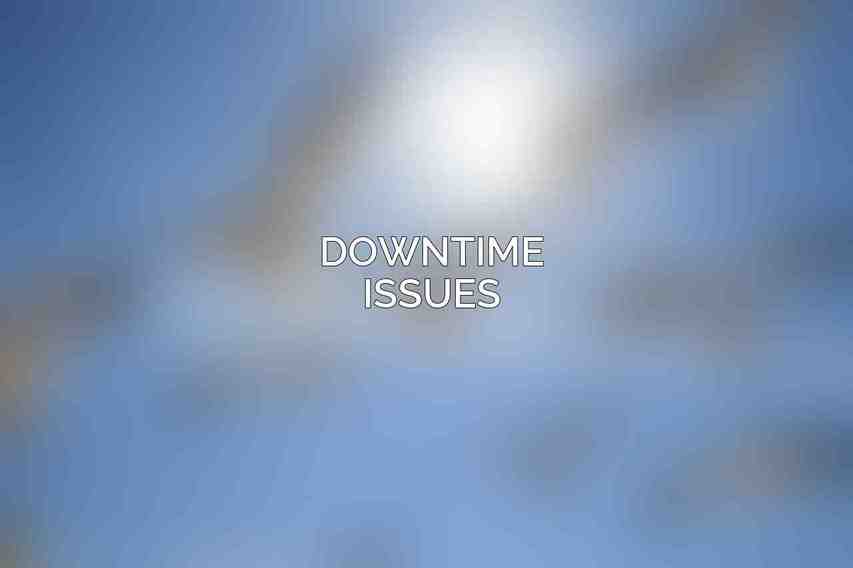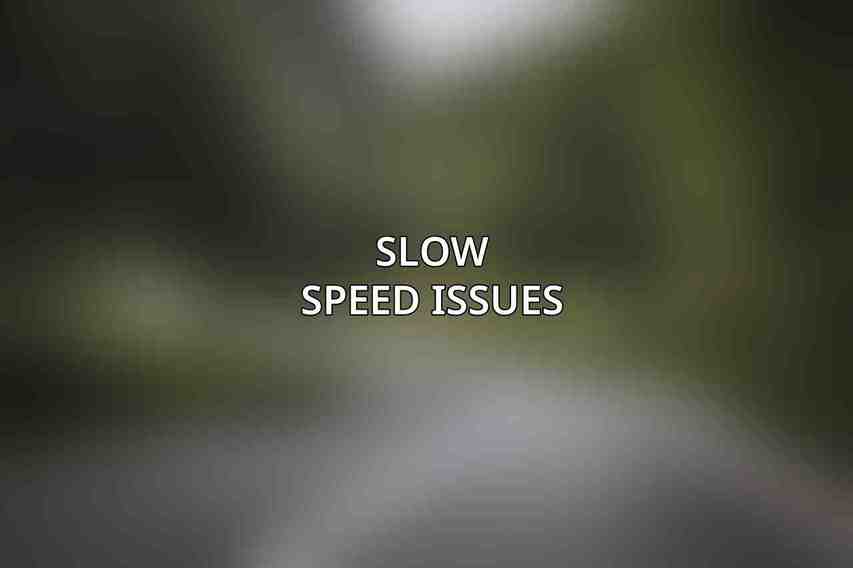When utilizing Interserver for web hosting services, users may encounter various technical issues that can impact the performance and accessibility of their websites. Addressing these issues promptly is crucial to minimizing downtime and ensuring optimal user experience. Interserver offers a range of resources and support options to assist users in troubleshooting and resolving common hosting issues efficiently.
One of the most common challenges faced by Interserver users is downtime, which can result from server outages, website inaccessibility, or domain resolution issues. Promptly identifying and addressing these problems is essential to maintain the reliability of a website and prevent potential business disruptions.
| Feature | Details | ||||||||||||||||||||||||||||||||||||||||||||||||||||||||||||||||||||||||||||||||||||||||||||||||||
|---|---|---|---|---|---|---|---|---|---|---|---|---|---|---|---|---|---|---|---|---|---|---|---|---|---|---|---|---|---|---|---|---|---|---|---|---|---|---|---|---|---|---|---|---|---|---|---|---|---|---|---|---|---|---|---|---|---|---|---|---|---|---|---|---|---|---|---|---|---|---|---|---|---|---|---|---|---|---|---|---|---|---|---|---|---|---|---|---|---|---|---|---|---|---|---|---|---|---|---|
| Company Website | Interserver Webhosting and VPS | ||||||||||||||||||||||||||||||||||||||||||||||||||||||||||||||||||||||||||||||||||||||||||||||||||
| Plans and Pricing | Shared, VPS, Dedicated, Cloud | ||||||||||||||||||||||||||||||||||||||||||||||||||||||||||||||||||||||||||||||||||||||||||||||||||
| Server Locations | USA (New Jersey and Los Angeles), India (Mumbai), UK (London) | ||||||||||||||||||||||||||||||||||||||||||||||||||||||||||||||||||||||||||||||||||||||||||||||||||
| Uptime Guarantee | 99.9% | ||||||||||||||||||||||||||||||||||||||||||||||||||||||||||||||||||||||||||||||||||||||||||||||||||
| Control Panel | cPanel/WHM | ||||||||||||||||||||||||||||||||||||||||||||||||||||||||||||||||||||||||||||||||||||||||||||||||||
| Technical Support | 24/7/365 via live chat, phone, and ticket system | ||||||||||||||||||||||||||||||||||||||||||||||||||||||||||||||||||||||||||||||||||||||||||||||||||
| Money-Back Guarantee | 30-day | ||||||||||||||||||||||||||||||||||||||||||||||||||||||||||||||||||||||||||||||||||||||||||||||||||
| Key Features | Unlimited storage, bandwidth, and email accounts; free SSL certificate; Cloudflare CDN | ||||||||||||||||||||||||||||||||||||||||||||||||||||||||||||||||||||||||||||||||||||||||||||||||||
| Visit (IS) Interserver Webhosting and VPS | |||||||||||||||||||||||||||||||||||||||||||||||||||||||||||||||||||||||||||||||||||||||||||||||||||
Downtime Issues

Issue 1: Server Outage
Description: A server outage results in a complete loss of access to websites or services hosted on Interserver.Possible Causes: Maintenance activities, hardware failures, or network connectivity issues.Troubleshooting Steps:– Check the Interserver status page for real-time updates on server status.- Contact Interserver support to inquire about the issue and obtain an estimated resolution time.- Monitor third-party monitoring tools to stay informed about the outage.
Issue 2: Website Inaccessible
Description: Users may experience errors or failures when trying to access a website.Possible Causes: Incorrect DNS settings, expired SSL certificates, or firewall restrictions.Troubleshooting Steps:– Verify DNS settings using a DNS lookup tool to ensure they are configured correctly.- Renew SSL certificates if expired and check firewall settings with Interserver support.- Confirm firewall configurations by reaching out to Interserver support.
Issue 3: Domain Not Resolving
Description: Domain names fail to load websites due to incorrect DNS settings or propagation delays.Possible Causes: Misconfigured DNS settings or delays in DNS propagation.Troubleshooting Steps:– Verify DNS settings to ensure the domain points to the correct IP address.- Allow time for DNS propagation to complete, typically within 24-48 hours.- Contact Interserver support if domain resolution issues persist.
Slow Speed Issues

Slow website performance can be attributed to various factors such as excessive plugin usage, server overload, or inefficient database queries. Identifying the root cause of slow speed problems and implementing effective solutions is essential to enhance website responsiveness and user satisfaction.
Issue 1: Slow Website Load Time
Description: Websites experience prolonged loading times due to plugin overload or server performance issues.Possible Causes: Too many plugins, server overload, or inefficient website code.Troubleshooting Steps:– Disable unnecessary plugins and optimize website code to reduce loading times.- Reach out to Interserver support for a performance analysis and optimization recommendations.- Explore Interserver VPS options for enhanced speed and performance.
Issue 2: Database Slowness
Description: Slow database operations can hinder website performance and responsiveness.Possible Causes: Poorly optimized queries, large database sizes, or excessive connections.Troubleshooting Steps:– Optimize database queries using tools like MySQLtuner to improve performance.- Regular database backups and maintenance can help reduce database size and enhance efficiency.- Collaborate with Interserver support to review and optimize server database configurations.
Issue 3: Server Overload
Description: High traffic or resource utilization can lead to server overload and slow performance.Possible Causes: Traffic spikes, limited CPU or memory resources, or excessive resource consumption.Troubleshooting Steps:– Consider upgrading to a higher hosting plan with more resources to meet growing demands.- Analyze server usage patterns with Interserver support to optimize performance and resource allocation.- Explore Interserver dedicated servers for dedicated resources and optimal performance.
Other Issues

In addition to downtime and speed-related challenges, users may encounter email, security, and billing issues that require immediate attention to maintain the integrity and functionality of their hosting services.
Issue 1: Email Issues
Description: Email-related problems like sending/receiving issues or spam complications can disrupt communication.Possible Causes: Misconfigured email settings, spam filters, or server malfunctions.Troubleshooting Steps:– Verify email settings and ensure proper configuration to enable seamless communication.- Stay informed about Interserver’s email server status for any ongoing issues or maintenance alerts.- Seek assistance from Interserver support if email problems persist to expedite resolution.
Issue 2: Security Issues
Description: Security breaches or compromises due to weak passwords, outdated software, or vulnerabilities.Possible Causes: Weak passwords, outdated software versions, or unaddressed security gaps.Troubleshooting Steps:– Immediately contact Interserver support in the event of a security breach to assess and mitigate the damage.- Reset passwords for all affected accounts and update software to the latest secure versions.- Implement robust security measures such as firewalls and malware scanners to fortify defenses.
Issue 3: Billing Issues
Description: Payment processing, invoice discrepancies, or account suspension concerns impacting services.Possible Causes: Payment issues, disputed transactions, or account suspension due to outstanding dues.Troubleshooting Steps:– Directly engage with Interserver’s billing department to address payment-related queries and discrepancies.- Review and update credit card information to ensure seamless payment processing and account activity.- Resolve any outstanding issues promptly to prevent service interruptions or account suspension.
By following the troubleshooting steps outlined for common Interserver hosting issues, users can effectively resolve technical challenges to maintain the reliability, performance, and security of their websites and hosting services.
For more information and detailed guidance on hosting solutions and troubleshooting assistance, visit Interserver’s website.
Frequently Asked Questions
Question 1
Why is my website loading slowly on Interserver hosting?
Answer 1
Slow website loading can be caused by various factors such as high server load, large image files, or inefficient coding. You can try optimizing your website, upgrading your hosting plan, or reaching out to Interserver support for assistance.
Question 2
How can I resolve database connection issues on Interserver hosting?
Answer 2
Database connection issues can be resolved by checking your database credentials, ensuring the database server is running, and confirming proper configuration in your website files. If issues persist, contacting Interserver support is recommended.
Question 3
What should I do if my emails are not being sent/received through Interserver hosting?
Answer 3
If you are facing email delivery problems, verify your email settings in the hosting control panel, check for any email blacklisting issues, and monitor your email logs for errors. Consider reaching out to Interserver support for further assistance.
Question 4
How do I fix SSL certificate errors on my Interserver hosting?
Answer 4
SSL certificate errors can occur due to misconfigured certificates or outdated browsers. Ensure that your SSL certificate is correctly installed, valid, and matches your domain. Clearing browser cache or updating browser versions can also help resolve SSL errors.
Question 5
What can I do if I encounter HTTP error codes on my Interserver-hosted site?
Answer 5
HTTP error codes like 404 (Not Found) or 500 (Internal Server Error) can be resolved by checking your website files for correct URLs, permissions, or server misconfigurations. Review server logs, update website plugins/themes, and seek assistance from Interserver support if needed.

